Dental: |
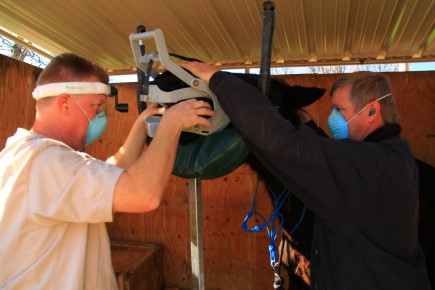
Note the portable and padded
headstand to keep your horse comfortable during the dental
procedure. The horse is backed in to the corner of the
stall. Access to electricity is needed.
|
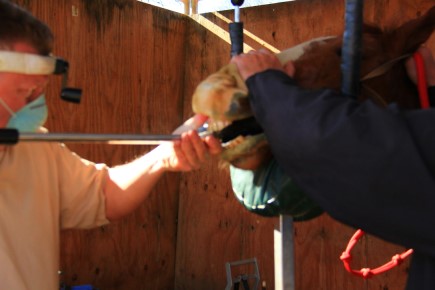
Keeping the horses mouth in
balance is very important for his health and comfort while
carrying a bit. Dr. Chapman recommends the average
horse have a dental float every other year. However,
the conformation of horses mouths vary, so some horse will
need it more often and some less often. |
Exams: |
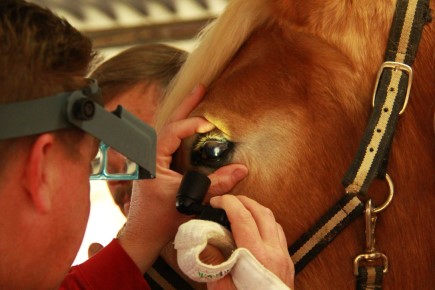
Whether it is a routine
health exam, prepurchase exam, or insurance exam, Chapman
Equine can do lameness test, blood work, teeth, eye exams, &
more.
|
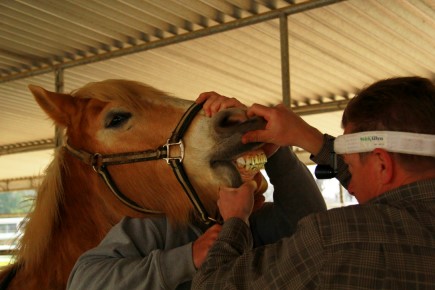 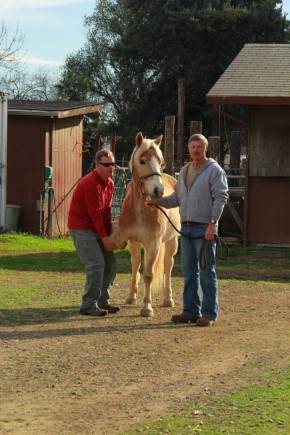
The flexion test (left) is
an integral part of the lameness exam. An exam of the
mouth (above) can help determine age and determine if he is
in need of dental work or when he may be due.
|
Vaccinations & annual check ups: |
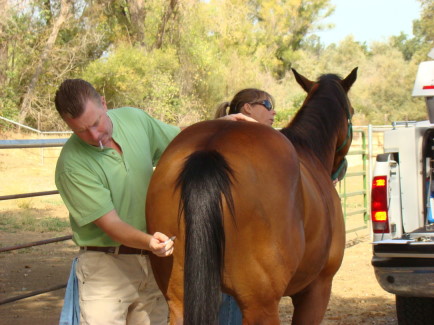
Dr. Chapman can
determine a vaccination protocol personalized for your horse.
A horse that is going to horse shows or events has different
needs than the backyard horse that doesn't come in contact
with other horses regularly. |
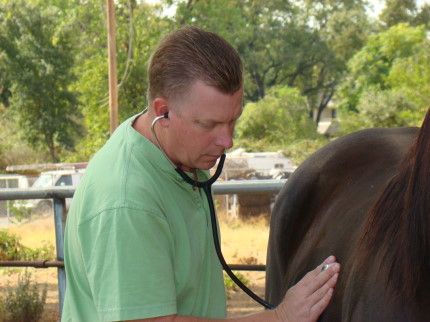
Listening to the heart and gut sounds is an important part
of an exam. Dr. Chapman will also listen for sand in
the digestive tract. Sand can cause your horse to
colic, so if present, it will need to be treated and
preventative measures will need to be implemented to keep
sand from accumulating again. |
Reproduction: |

Chapman Equine has a portable ultrasound machine and can
assist getting your mare in foal, maintaining her pregnancy,
and the post-foaling exam for the mare and foal. |
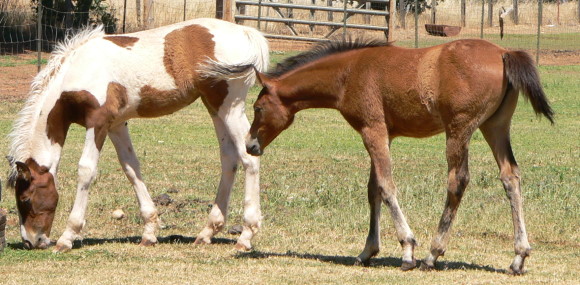 |
Wound Treatment: |
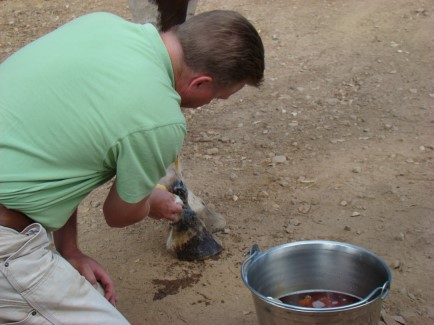
Dr.
Chapman cleaning a would on the fetlock of a horse. |
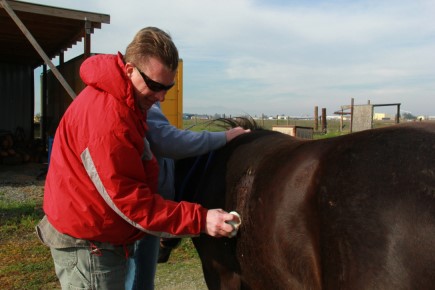
Cleaning a wound on the side
of a horse. |
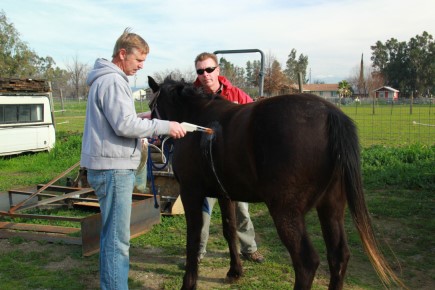
Rick
irrigating the wound to make sure all debris is out. |
Field Surgery |
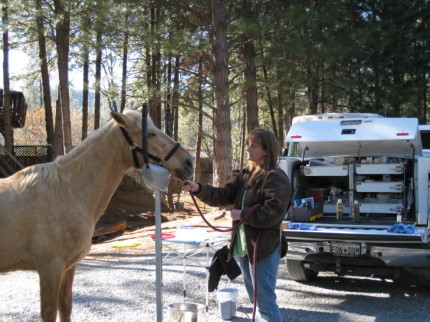
Dr.
Chapman's mobile vet truck is well stocked to provide
quality care while in the field, even surgeries. |
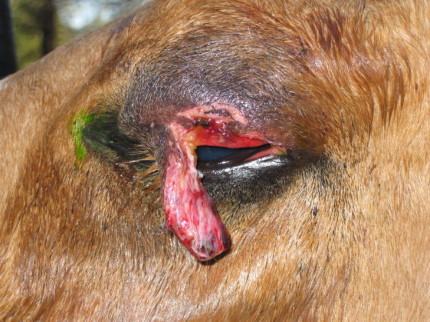
Laceration on the upper
eyelid. |
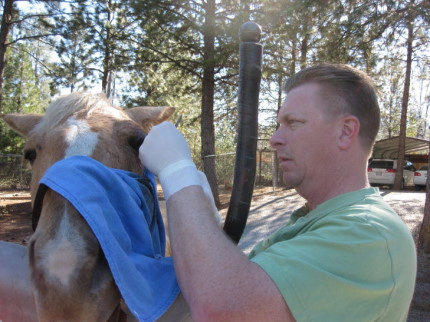
Dan
suturing the eyelid. |
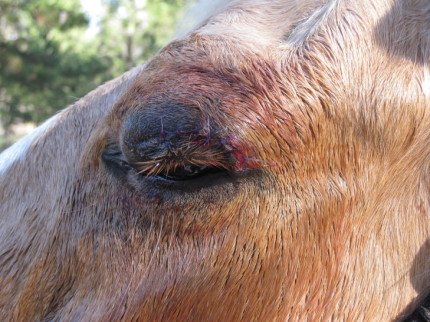
Stitches are done. |
|
|